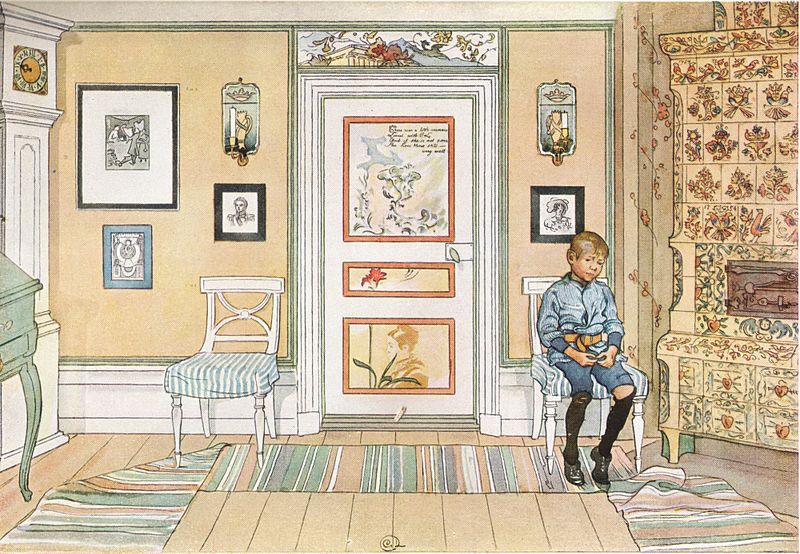Continuing my reflections on Dietrich von Hildebrand’s book, The Nature Love, I touch upon the philosophy of ethics and how the ability to choose what is morally good leads one to love the good and keep choosing the good.
“Come on,” my uncle said as he ushered my two siblings, cousin and me through the kitchen to the big pantry door. We dragged our little feet along the tile sensing from his tone of voice that something serious was happening. Stepping inside the spacious pantry, we stood there looking up at him as he looked down on each one of us. I noticed his round, white, bald head was slightly glistening and bounced a ray of light from the electric bulb shining on him. Looking to the left and right sides of me, there were shelves full of homemade canned goods and tiny antique bottles. During our hide and seek games, the pantry was a perfect place to hide: we could squeeze into the crevices of the shelves. This time the pantry was not meant for that purpose, it was meant for something austere.
Pointing to the wall he said, “Look, you see that?” All looking, we obediently responded nodding our heads with our eyes wide open and mouths agape. The object was about two feet long, four inches wide, wooden and had three large holes lined down the middle. It was about as thick as the end of your forefinger. He said, “Lying will get you nowhere except the back end of that paddle.” The four of us were immediately stunned by the severity of what could happen as a result of lying. The last thing any one of us wanted was to experience that wood on our behind. Through being disciplined by our elders, we learned very quickly that doing bad things would lead us nowhere.
It is difficult to recall the first time we are told to always tell the truth and to never lie. Although this was not my first time being told not to lie, the consequences of lying became very real to my siblings, cousin and me that day. Morality is more than the commands of our elders. Our parents and elders were teaching us an upright way of living so that we would become responsible adults who do what is good, treating others with respect. After this experience and countless others, I slowly grew into a desire that made me not only want to do the good, but love the good. “The virtuous person not only wants the good, he also loves it; he rejoices over the good prevailing, whether this comes about by his fulfilling his moral obligation, or by having the opportunity to do meritorious deeds, or even by other persons acting morally well.” (1) A love is understood on the basis of understanding to which it responds. When we see the value of a good we understand why one would love it.
Reflecting back on the punishment I received as a child, I realize that I was filled with fear at doing what was wrong. Fear might not always be the best tactic to teach us how to love the good, but at the same time I can say in that moment of my life, it definitely helped me make choices contrary to what was bad, which in this case was the act of lying. By telling the truth, even in difficult circumstances, I came to see the value of honesty. In this and in many other cases, I came to see how good it is to do what is good. I loved it and only wanted to rejoice in it. Let us keep in mind, we must grow in self-discipline so that we might truly know what is good and have the personal strength and character to do it.
Image 1. Boy in "time-out"
[1] Dietrich von Hildebrand’s The Nature of Love. South Bend: St. Augustine's Press, 2009. 92.


0 comments
Note: Only a member of this blog may post a comment.